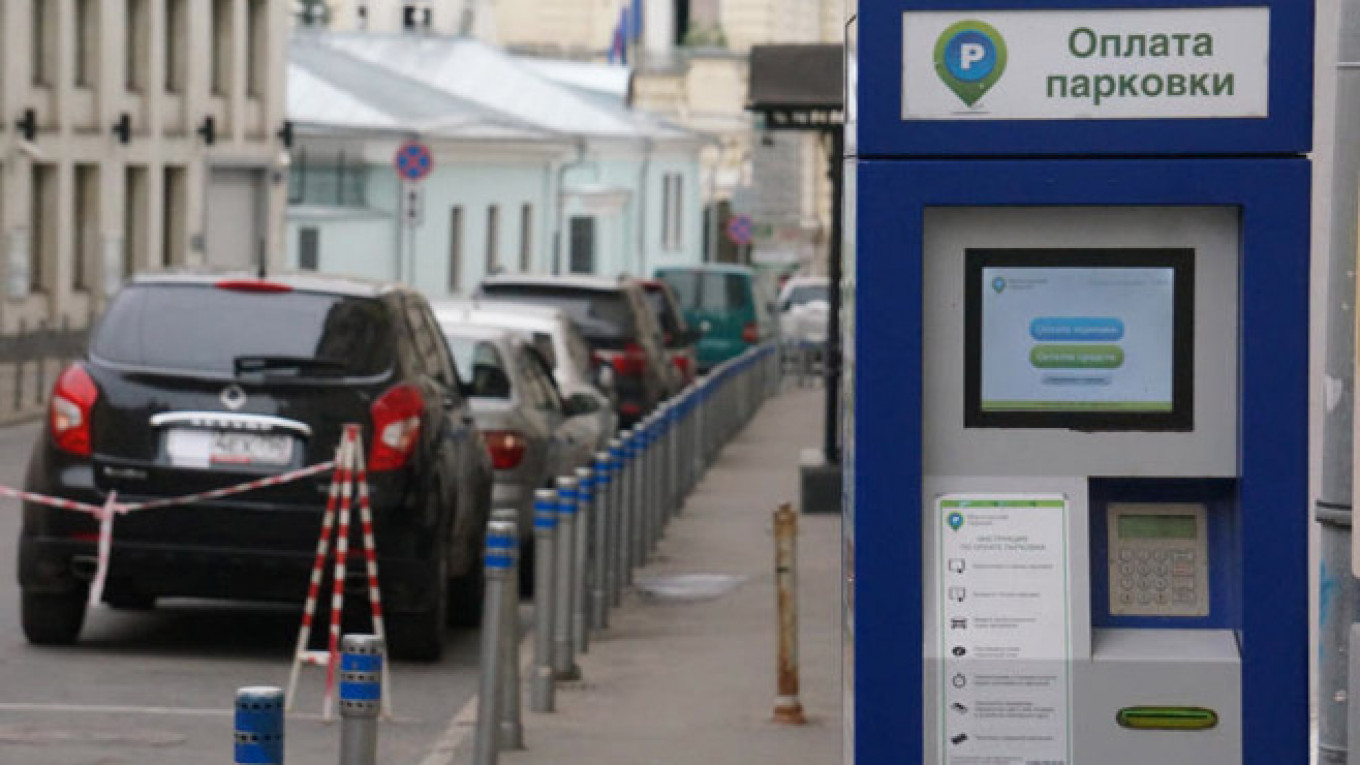The paid parking zone in Moscow will almost double in size in December to include all the streets between the Garden Ring and the Moscow Ring Road (MKAD). That makes good sense: Introducing paid parking in the downtown is one of the most productive measures that the Moscow government has introduced in recent years and is grounded not only in sound economic theory but also international experience.
It is entirely possible that not only Muscovites in general but automobile owners in particular stand to benefit from paid parking, but unfortunately, economically sound measures are not always popular. If it were put to a vote, citizens would probably reject the idea of paid parking.
What are its economic consequences? In the past year since September 2013, Moscow City Hall has collected almost 2 billion rubles ($42.7 million) in parking revenues. Of course, this is not exactly a windfall or "new money" in the system because Muscovites themselves paid the entire amount: What one party gains the other loses. So how is this beneficial?
First, paid parking has changed the composition of those who drive into and park in the downtown. Previously, a high-paid employee of a company located in the center of town spent more time looking for a place to park or else was forced to park illegally — distracting him from work because he worried all day about getting a ticket or the authorities towing his car away. The loss in his productivity exceeded the current cost of his parking fees.
And if someone drives in to attend a play or concert or eat at a restaurant, he or she can almost always find a vacant parking space now. At the same time, if a shortage of parking spaces develops, the authorities can simply raise the price to weed out the casual visitors from people who have to be there.
Why has the introduction of paid parking freed up more parking spaces? Because for some drivers, the actual "value" of parking in the center is lower than the fee now required.
Those people have either stopped driving in the downtown or else they come less frequently, freeing up the roads and parking spaces for those who value those privileges enough to pay the price.
Even people who try to get around the law by taping over their license plate numbers so cameras cannot record their violation — thus saving 100 rubles each time — ultimately end up paying into the system when they do get caught and pay the 2,000 ruble fine. In fact, even those who now drive into the downtown much less now stand to benefit because when they do drive in, the traffic is lighter and parking is easier to find than before.
Of course, Moscow's paid parking does have a number of drawbacks. The various price zones are delineated very loosely and the so-called "time zones" even more so. Parking signs sometimes stand in the wrong place or the parking rules are poorly displayed. Also, parking violators abound and too often manage to evade responsibility.
However, the authorities have taken the first important step in the right direction. Let's hope they continue.
Konstantin Sonin, a columnist for Vedomosti, is professor of economics and vice rector at the Higher School of Economics in Moscow.
A Message from The Moscow Times:
Dear readers,
We are facing unprecedented challenges. Russia's Prosecutor General's Office has designated The Moscow Times as an "undesirable" organization, criminalizing our work and putting our staff at risk of prosecution. This follows our earlier unjust labeling as a "foreign agent."
These actions are direct attempts to silence independent journalism in Russia. The authorities claim our work "discredits the decisions of the Russian leadership." We see things differently: we strive to provide accurate, unbiased reporting on Russia.
We, the journalists of The Moscow Times, refuse to be silenced. But to continue our work, we need your help.
Your support, no matter how small, makes a world of difference. If you can, please support us monthly starting from just $2. It's quick to set up, and every contribution makes a significant impact.
By supporting The Moscow Times, you're defending open, independent journalism in the face of repression. Thank you for standing with us.
Remind me later.






